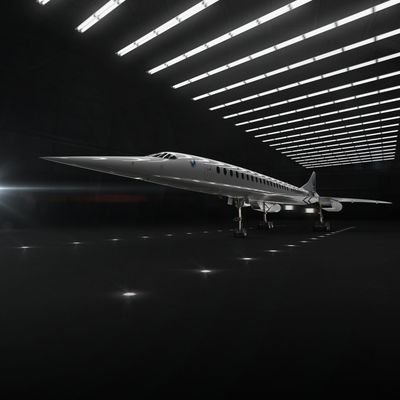American Airlines places order for 20 supersonic jets

American Airlines has put down deposits on 20 supersonic jets from startup aerospace company Boom Supersonic that could fly as fast as 1,300 miles an hour.
American and Denver-based Boom Supersonic announced the deal Tuesday, saying the airline has put nonrefundable deposits on 20 of Boom’s new Overture aircraft and placed options for 40 more.
American didn’t say how much it paid for the supersonic jets, but it did say that Boom must meet “industry standard operating, performance and safety requirements” along with other conditions.
Airlines such as American are hoping supersonic jets can make international travel more appealing.
Under current rules, planes must stay below the speed of sound while traveling over land but can use supersonic speeds over oceans.
“Looking to the future, supersonic travel will be an important part of our ability to deliver for our customers,” Derek Kerr, American’s chief financial officer, said in a statement.
“We are excited about how Boom will shape the future of travel both for our company and our customers.”
The Overture would fly about twice as fast a traditional airline jet.
But those long-haul jets from makers like Boeing and Airbus also carry 240 passengers or more.
Boom plans to have the Overture, its commercial jet designed for 65 to 80 passengers, ready for flight testing as soon as 2026 and hopes it could carry commercial airline passengers as soon as 2029.
Airlines have been curious about a return to faster-than-sound travel since the Concorde stopped flying its transatlantic routes in 2003, mostly because the small jets were loud and expensive to operate, guzzling fuel at high rates.
Supersonic flying is banned over land in the United States because of the loud booms it produces.
But groups such as Lockheed Martin and NASA are working on more aerodynamic designs that both quiet the supersonic boom and direct it upward to make it more tolerable to people on the ground.
There are also rules against flying at faster-than-sound speeds over land in most parts of the world because of the supersonic booms.
Boom is hoping to change that, at least for travel over oceans.
The company says its supersonic jet design is more fuel efficient because of its aerodynamic design and that it can fly without afterburners to reduce noise and fuel burn.
The Overture design would also fly cooler than the Concorde design, which faced durability issues because it would get hot during flight due to friction between the aircraft’s exterior parts and the surrounding air.
Boom said it plans to break ground on a small factory in Greenville, South Carolina, later this year.
It says it already has orders for 130 jets, including commitments from Chicago-based United Airlines and Japan Airlines.